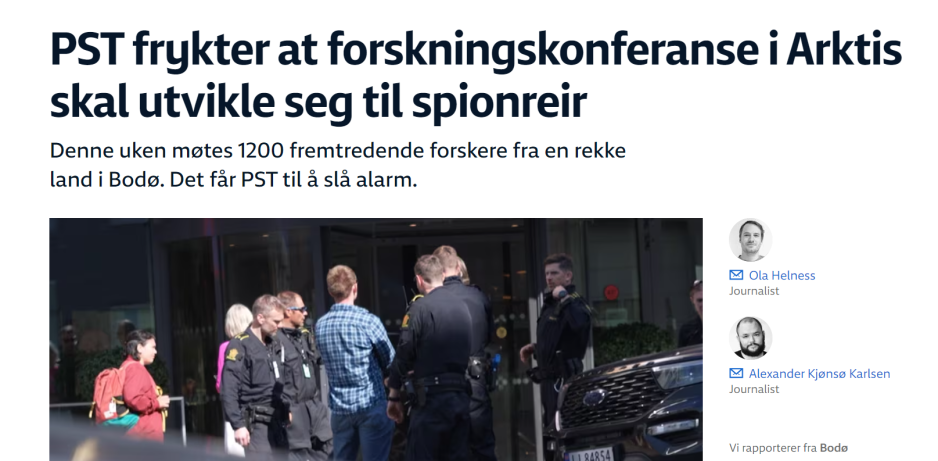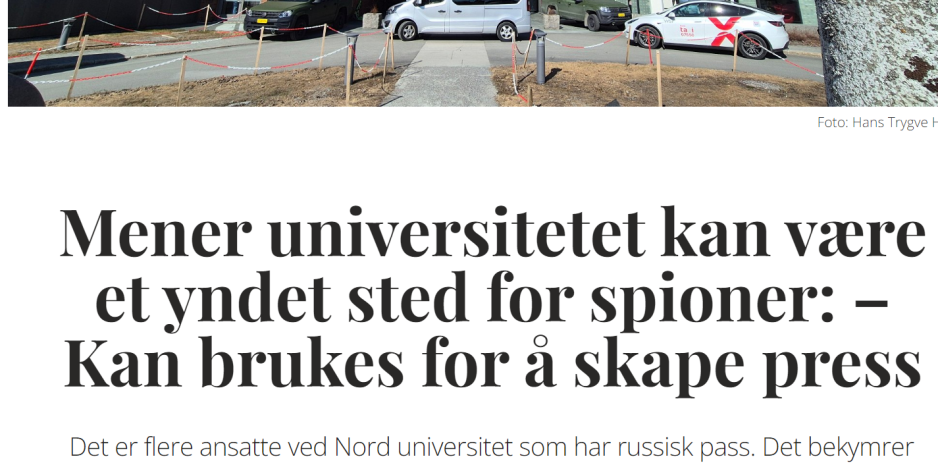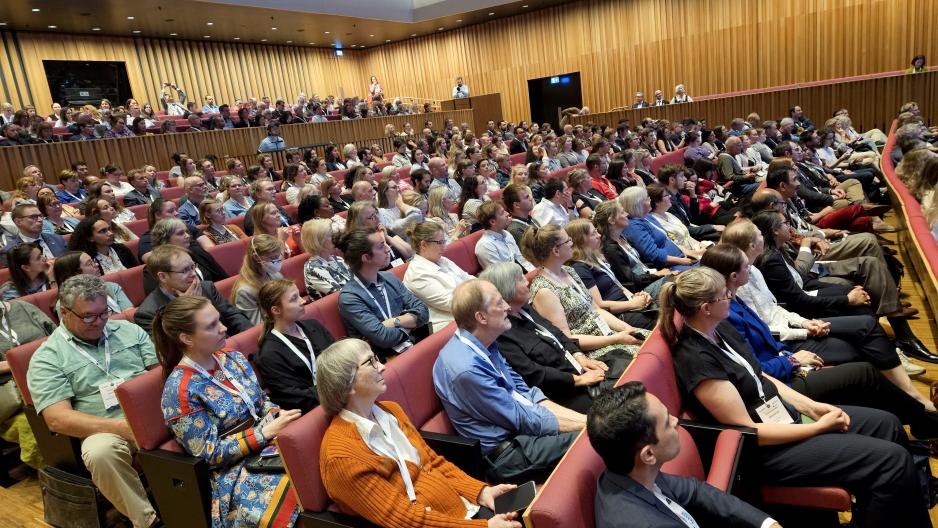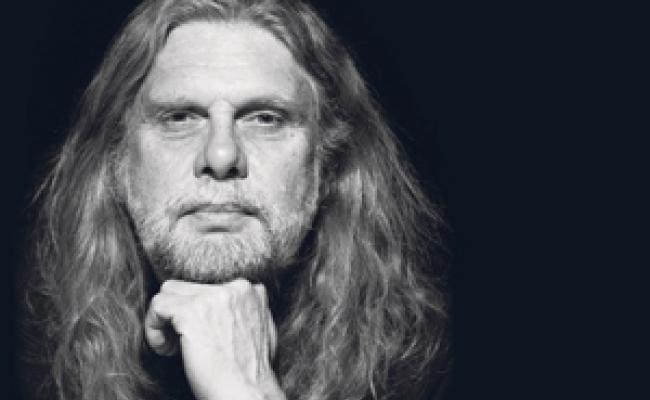Arne O. Holm says Report From a ‘Spy Nest’ - Sans the Cowardly Mask of Anonymity

The Norwegian national broadcaster NRK feared a 'spy nest.' The title reads: The Norwegian Police Security Service fears that an Arctic research conference will develop into a spy nest. (Screenshot from NRK 29.05.24).
Commentary: There are strict requirements for the use of anonymous sources in journalism. Even when the attacks are directed at people with Russian passports. Hiding behind the cowardly mask of anonymity does not absolve you of that responsibility.
This is a commentary written by a member of the editorial staff. The comment expresses the writer's opinions.
Those who are affected by anonymous personal attacks stand defenseless and alone, deprived of all their characteristics and qualifications except their citizenship.
This is particularly true when the attacks come from media that justify their quality with being editorially controlled, in contrast to social platforms where almost anything is allowed.
1,200 participants
Last week, 1,200 researchers, politicians, and community actors met in Bodø, Northern Norway.
This was a massive manifestation of the High North's international significance but also a gold mine of knowledge for those concerned with the Arctic at a time when our neighboring country, Russia, is leading a brutal war in Ukraine, and the temperature of the globe is rising at a threatening pace.
Three organizers were behind the Arctic Congress: the High North Center of Business and Governance at Nord University, the University of the Arctic, and the International Arctic Social Sciences Association.
The ones affected stand defenseless and alone.
Among the participants were four employees of the Norwegian Police Security Service (PST). Things could not be more normal. The PST are present and have been present at absolutely all major conferences in the High North for a long time. This is part of their preventative work.
Fear of a 'spy nest'
This time, the Norwegian national broadcaster, NRK, also stopped by. On their way out the door, they delivered the following summary of the four-day-long conference:
The PST fears the Arctic research conference will develop into a 'spy nest'.
Fear could only be found one place, in the journalists' pen, on the hunt for enemies among us. Not one place in the interview does the PST describe the conference as a spy nest. In their usual manner, and with increasing conscious openness about their presence, the PST asked us present to be vigilant.

The local newspaper Avisa Nordland with anonymous attacks on Russians. The title reads: Believes the university could be a desired place for spies: "Can be used to exert pressure." (Screenshot from Avisa Nordland 26.05.24)
In an otherwise thorough article on the challenges faced by academia due to its international character, the newspaper attacked the High North Center's employees with Russian passports.
According to the newspaper, the number of employees holding Russian passports has "concerned many for a long time."
Stumbles
When the newspaper tries to justify this "concern," it stumbles in all kinds of press ethical warnings, as "no one wants to come public with their critique."
The newspaper has allegedly talked to several sources but cannot document more than two confusingly similar anonymous statements.
"The High North Center's dispositions have made it challenging and uncomfortable for us concerned with public security and security policy in the North," says one of the anonymous sources.
Stumbles in all kinds of press ethical warnings.
The "other" also feels uncomfortable because they "feel they cannot speak openly and freely."
One should listen to people's discomfort and emotional lives. Still, when the feelings appear as an attack on a small group of people identifiable as soon as one enters the High North Center's website, this emotional person should at least have a face and a name.
Requirements of the anonymous
The press ethics set several requirements for the use of anonymous sources. One is that the information must be of clear significance and impossible to convey in any other way.
Another requirement is that anonymous sources should not, as a general rule, be allowed to present negative personal characteristics.
None of the rendered quotes meet these requirements.

More than 1,200 researchers, politicians, and other public actors were recently gathered in Bodø, Northern Norway, for discussions and lectures on the High North and the Arctic during the Arctic Congress. (Photo: Arne O. Holm)
The emotional life of a random Nord University employee is of no significance to others than the person themself. It does not help that the attacks are targeting, for all practical purposes, named individuals.
If Avisa Nordland's source(s) had been open, we could perhaps have had an interesting discussion.
Now, the discussion is limited to raising suspicion about employees at the High North Center who have children in schools and kindergartens, socialize with their neighbors, and participate in social activities.
Emotional life
Their profession and expertise, as PhD fellows and researchers employed and engaged in fierce competition with candidates from several nations, are erased with the stroke of a pen because an unnamed source has aired their emotional life in the local newspaper.
Add NRK's descriptions of a spy nest, and we can see the contours of a difficult everyday life, not only for employees holding Russian passports but also for the myriad of nations that research, write, and teach at Nord University.
The emotional life of a random employee is of no significance.
It is the state of Russia that has gone to war with Ukraine and the West. Not individual Russians.
I often listen to people's feelings, particularly now that Europe is burning. It is part of my job.
In the same way, it is the journalist's job to keep anonymous, insubstantial feelings and personal attacks out of the newspaper columns.
This affects individuals, in addition to obfuscating an important debate about intelligence, democracy, and academic freedom.
High North News is an independent online newspaper managed according to the Rights and Duties of the Editor and owned by the High North Center at Nord University (editorial note).



